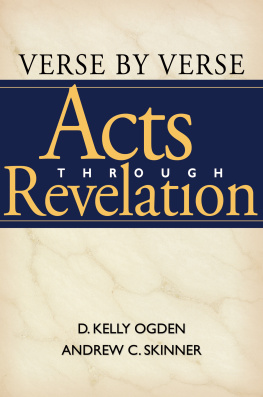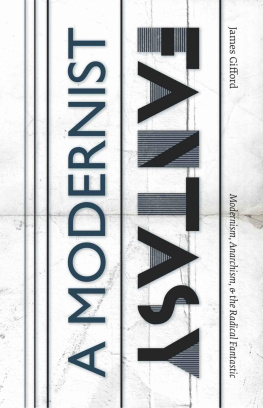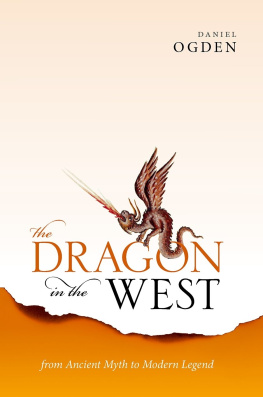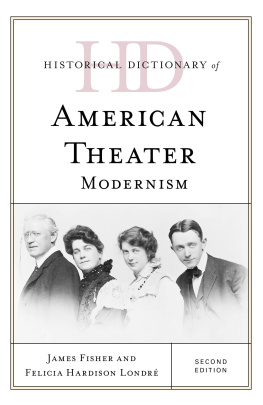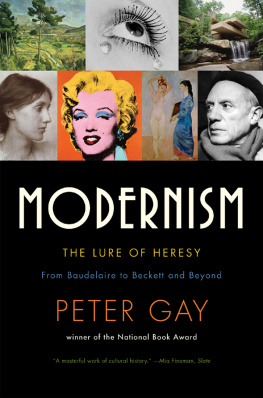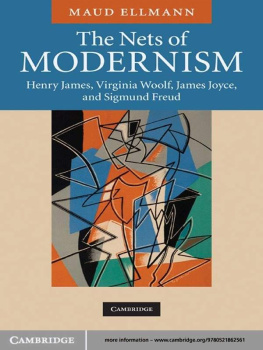James McElvenny - Language and meaning in the age of modernism : C.K. Ogden and his contemporaries
Here you can read online James McElvenny - Language and meaning in the age of modernism : C.K. Ogden and his contemporaries full text of the book (entire story) in english for free. Download pdf and epub, get meaning, cover and reviews about this ebook. year: 2018, genre: Religion. Description of the work, (preface) as well as reviews are available. Best literature library LitArk.com created for fans of good reading and offers a wide selection of genres:
Romance novel
Science fiction
Adventure
Detective
Science
History
Home and family
Prose
Art
Politics
Computer
Non-fiction
Religion
Business
Children
Humor
Choose a favorite category and find really read worthwhile books. Enjoy immersion in the world of imagination, feel the emotions of the characters or learn something new for yourself, make an fascinating discovery.
- Book:Language and meaning in the age of modernism : C.K. Ogden and his contemporaries
- Author:
- Genre:
- Year:2018
- Rating:5 / 5
- Favourites:Add to favourites
- Your mark:
- 100
- 1
- 2
- 3
- 4
- 5
Language and meaning in the age of modernism : C.K. Ogden and his contemporaries: summary, description and annotation
We offer to read an annotation, description, summary or preface (depends on what the author of the book "Language and meaning in the age of modernism : C.K. Ogden and his contemporaries" wrote himself). If you haven't found the necessary information about the book — write in the comments, we will try to find it.
James McElvenny: author's other books
Who wrote Language and meaning in the age of modernism : C.K. Ogden and his contemporaries? Find out the surname, the name of the author of the book and a list of all author's works by series.
Language and meaning in the age of modernism : C.K. Ogden and his contemporaries — read online for free the complete book (whole text) full work
Below is the text of the book, divided by pages. System saving the place of the last page read, allows you to conveniently read the book "Language and meaning in the age of modernism : C.K. Ogden and his contemporaries" online for free, without having to search again every time where you left off. Put a bookmark, and you can go to the page where you finished reading at any time.
Font size:
Interval:
Bookmark:

Language and Meaning in the Age of Modernism
For P. W.
Language and Meaning in the Age of Modernism
C. K. Ogden and his Contemporaries
James McElvenny

Edinburgh University Press is one of the leading university presses in the UK. We publish academic books and journals in our selected subject areas across the humanities and social sciences, combining cutting-edge scholarship with high editorial and production values to produce academic works of lasting importance. For more information visit our website: edinburghuniversitypress.com
James McElvenny, 2018
Edinburgh University Press Ltd
The Tun Holyrood Road
12(2f) Jacksons Entry
Edinburgh EH8 8PJ
A CIP record for this book is available from the British Library
ISBN 978-1-4744-2505-6
The right of James McElvenny to be identified as the author of this work has been asserted in accordance with the Copyright, Designs and Patents Act 1988, and the Copyright and Related Rights Regulations 2003 (SI No. 2498).
Over the years in which this book has taken shape I have received instruction, support and assistance from numerous people and institutions. First among these is of course Nick Riemer, who supervised the doctoral dissertation on which this book is based. Without his guidance and, above all, the freedom he afforded me in my research, it would not have been possible for me to explore the topics and themes presented in this book.
For inducting me into the world of interlinguistics, I must thank the Gesellschaft fr Interlinguistik, and Sabine Fiedler and the late Detlev Blanke, who invited me to join it. For their invaluable feedback on earlier versions of the text contained in this book, I thank Anders Ahlqvist, A. W. Carus, Arwen Cross, W. Terrence Gordon, John E. Joseph, Piers Kelly and Friedrich Stadler. The current version of the text as appears in these pages was carefully copy-edited by Geraldine Lyons, whom I also thank.
The modern-day incarnation of the Gesellschafts- und Wirtschaftsmuseum in Vienna kindly granted me permission to reproduce are reproduced by permission of Taylor and Francis Books UK, which asserts international copyright over C. K. Ogden and I. A. Richards The Meaning of Meaning, originally published in 1923 by Kegan Paul.
In novels, Utopias, essays, films, pamphlets, the antithesis crops up, always more or less the same. On the one side science, order, progress, internationalism, aeroplanes, steel, concrete, hygiene: on the other side war, nationalism, religion, monarchy, peasants, Greek professors, poets, horses. History as he sees it is a series of victories won by the scientific man over the romantic man. (Orwell 1968 [1941]: 142)
Written during the most hopeless days of the Second World War, this is George Orwells (19031950) summary of the main themes in the writings of H. G. Wells (18661946). The faith in science and technology to effect progress for humanity that Orwell identified in Wells is the same sentiment that drives the efforts recounted in these pages, efforts to tame language, pin it down, bring it under the control of science and engineer it anew for the benefit of humanity. These efforts we explore from the perspective of the English scholar C. K. Ogden (18891957) the C and K stand for Charles and Kay respectively, but he preferred to be known just as C. K. whose various projects span from the first decade of the twentieth century to the end of the Second World War, years typically identified with the age of modernism.
It is fitting that we open with Wells and Orwell. Not only did both serve, as we will see, as literary interpreters of Ogdens later work, but they also delineate our age. Each of them stands at one end of the era and of the cultural arc that begins with optimism and ends with disillusionment: Wells at the hopeful beginning and Orwell at the troubled and sober end. This is the arc of the age of modernism. Modernism, as every text that invokes it must observe, is a nebulous term, conjuring up various fashions and associations. The general character of modernism as a socio-historical category is well known and hardly needs to be rehearsed here. Nevertheless, the very breadth of the category necessitates some explicit attempt to delineate its contours, which are discernible also in the specific ideas and events we recount in this book.
A prominent feature of the age of modernism, and a key aspect for us, is technology. In this period, technology was often praised as the driver of progress, but the unprecedented change it brought was associated with tumult, revolution and the resulting human catastrophes that marred the age. Within a single lifetime, the transport and communication networks of the world driven by inventions perfected in the nineteenth century: railways, steamships and the electric telegraph and telephone were expanded and consolidated to the point that every part of the globe could be reached with unprecedented ease. With the turn of the twentieth century advances in radio technology (Guglielmo Marconis first practical demonstrations were made in England in 1897) and powered flight (the Wright brothers first flight was in Kitty Hawk, North Carolina, in 1903) extended this reach into the ether and air. Enumeration of these advances and the inspiration they offer is a mainstay of the rhetoric employed by the figures that appear in these pages.
Concomitant with these technological advances was rapid social change around the world. Mass political movements were formed depending on the region by landless lower middle classes, industrial workers and women, and through such political movements these oppressed groups asserted their rights. This brought about the expansion of voting franchises and, in some cases, fullblown revolution, such as the decisive 1917 October Revolution in Russia, and the uprisings in Germany and the Habsburg Empire after the First World War. Outside Europe but by no means independently of events on that continent political and social upheavals occurred in the Ottoman Empire, Persia, China and Mexico.
The major turning point within Europe, and to varying degrees beyond, was the First World War, the first war in human history to draw most of the globe into simultaneous hostilities. It saw death and destruction on a scale never before known, facilitated by technological marvels of the same kind that had so visibly accelerated humanitys progress. The events that followed in Europe and the wider western world, the Great Depression of the 1930s, the polarisation of politics in Central Europe and Russia, the rise of totalitarian dictatorships, and the eventual total war that began in 1939 and continued for six years, levelling cities and killing millions with bombers, rockets and, of course, the atomic bomb, complete the cycle. These later catastrophes, and the extremist highflown rhetoric and actions that fuelled them, are the source of the disillusionment with which we are left at the end of our period.
Crisis and revolution were not confined to technology and the social world. Natural science which frequently, but not invariably, both learnt from and informed technological advance was wracked by revolutions as it annexed ever more of the world to its descriptive and explanatory sovereignty. The classic example here is of course physics. Einsteins theories of special and then general relativity published 1905 and 1915, with full absorption into mainstream physics over the following years not only eventually served to provide an alternative explanation that rendered the postulation of the recently conquered ether obsolete, but also broke down the old objective certainties of Newtonian physics and made them relative to the observer. Research into atoms, which proved through the possibility of their decomposition that they had been prematurely baptised, led to the development of quantum theory in the 1920s, made up of numerous attempts to capture the unpredictability of the subatomic realm. The revolutionary advances made in the natural sciences, often intertwined with technological breakthroughs and social consequences, inspired thinkers in traditionally book-bound, human-focused fields. The frequent invocation of science and scientific methods that we will encounter in the treatments of language and meaning examined in this book attest to the importance attributed to the natural sciences as the source of rigorous and valid knowledge.
Next pageFont size:
Interval:
Bookmark:
Similar books «Language and meaning in the age of modernism : C.K. Ogden and his contemporaries»
Look at similar books to Language and meaning in the age of modernism : C.K. Ogden and his contemporaries. We have selected literature similar in name and meaning in the hope of providing readers with more options to find new, interesting, not yet read works.
Discussion, reviews of the book Language and meaning in the age of modernism : C.K. Ogden and his contemporaries and just readers' own opinions. Leave your comments, write what you think about the work, its meaning or the main characters. Specify what exactly you liked and what you didn't like, and why you think so.



